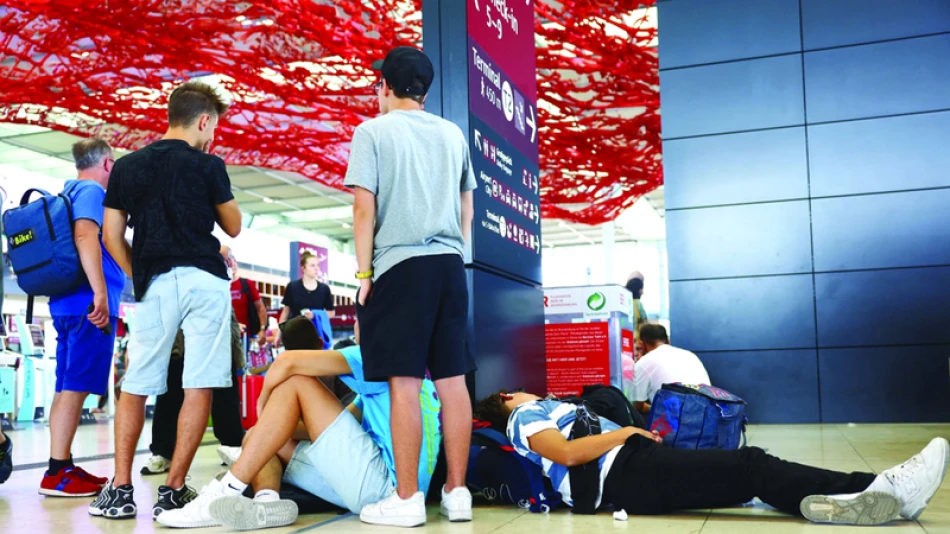
Ongoing Fallout from Cyberattack Cripples Berlin Airport's Operations
Berlin's main airport is still struggling with massive disruptions a week after a cyberattack hit Collins Aerospace, the company that runs critical passenger and baggage systems. Travelers are facing long waits and baggage problems, even during the weekend when traffic is typically lighter.
The attack happened on a Friday about two weeks ago and affected multiple European airports. But Berlin has been hit particularly hard because the hackers managed to cripple the electronic systems that handle check-ins and process luggage.
Airport officials said they expected around 72,000 passengers yesterday, down from 90,500 the day before. A spokesperson said they're "coming out of crisis mode step by step," but the recovery is taking longer than anyone hoped.
Here's what's working and what isn't: Self-service kiosks are still running, so most passengers can check in on their own. Self-service baggage drop machines are also functioning in most cases. But the main check-in desks are still down, and that's creating bottlenecks.
Collins Aerospace has deployed 20 IT specialists who are working around the clock to fix the systems. They've managed to get a temporary backup system running for baggage handling, but it's not enough to prevent delays.
The baggage situation is causing some unusual problems. Some frustrated travelers are trying to take their checked luggage through security checkpoints as carry-ons. Airport staff have to turn them away because security rules don't allow it.
This incident shows how vulnerable airports have become to cyber threats. Collins Aerospace provides IT services to airports across Europe, so when hackers target one company, the ripple effects can ground operations at multiple locations. For Berlin, which relies heavily on tourism and business travel, every day of disruption means lost revenue and angry passengers who might choose other airports next time.
The attack also highlights a broader trend in cybercrime. Hackers are increasingly targeting infrastructure companies rather than individual airports because they can cause more widespread damage with a single breach.
Most Viewed News

 Sara Khaled
Sara Khaled






